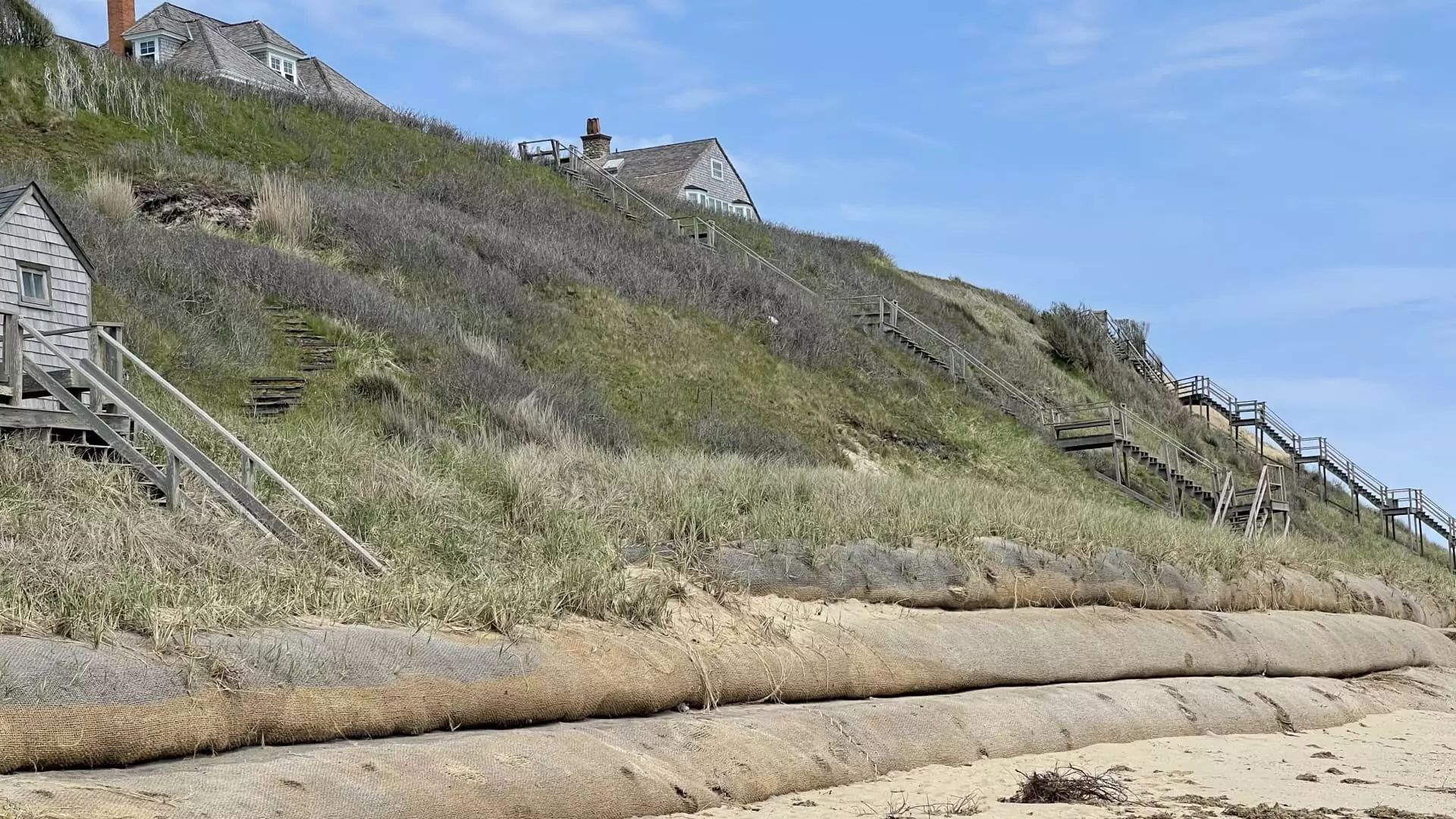As sea levels continue to rise and storms become more intense, coastal real estate is facing unprecedented challenges. From California to New York and Massachusetts, some of the nation’s most expensive coastal properties are at risk due to climate change. The 2021 hurricane season is expected to be “above-normal” in terms of activity, with up to 13 hurricanes predicted, of which four to seven could be categorized as “major” storms.
The effects of climate change are already being felt in the real estate market, with falling property values and increased risks for homeowners. One example is a Nantucket home that was listed for over $2 million last summer but sold for just $600,000 early this year. A Nor’easter in the fall caused the property to lose 70 feet of beachfront due to sea level rise and intense rainfall. Despite the significant loss, the buyer believed the reduced price reflected the associated risks.
Real estate agents in at-risk areas are beginning to address the impact of climate change on property values. Shelly Lockwood, a real estate agent in Nantucket, launched a seminar to educate fellow agents on repricing homes that are vulnerable to erosion. Lockwood emphasized the importance of communicating risks to clients and ensuring that property values are accurately assessed based on current conditions.
Coastal communities like Montauk are facing challenges in protecting multimillion-dollar properties from flooding and erosion. Homeowners are struggling to maintain the value of their properties as sea levels rise and storms worsen. In some cases, homeowners are unable to sell their properties at the prices they originally paid, leading to concerns about long-term financial impacts.
The potential economic consequences of declining property values and reduced tax revenues are significant. If more homes are reassessed and taxes are lowered, the local economy could suffer, leading to a need for increased taxes for all residents. Nantucket residents are considering which areas of the island require the most support and how to fund necessary improvements. In Montauk, experts are revisiting coastal resilience plans developed after Superstorm Sandy, as they are outdated due to the rapid pace of climate change.
The impact of climate change on coastal real estate is becoming increasingly evident. From falling property values to the erosion of beaches and rising sea levels, homeowners and communities are facing significant challenges. Real estate agents, homeowners, and local governments must work together to address these challenges and find sustainable solutions to protect coastal properties in the face of ongoing climate change.

